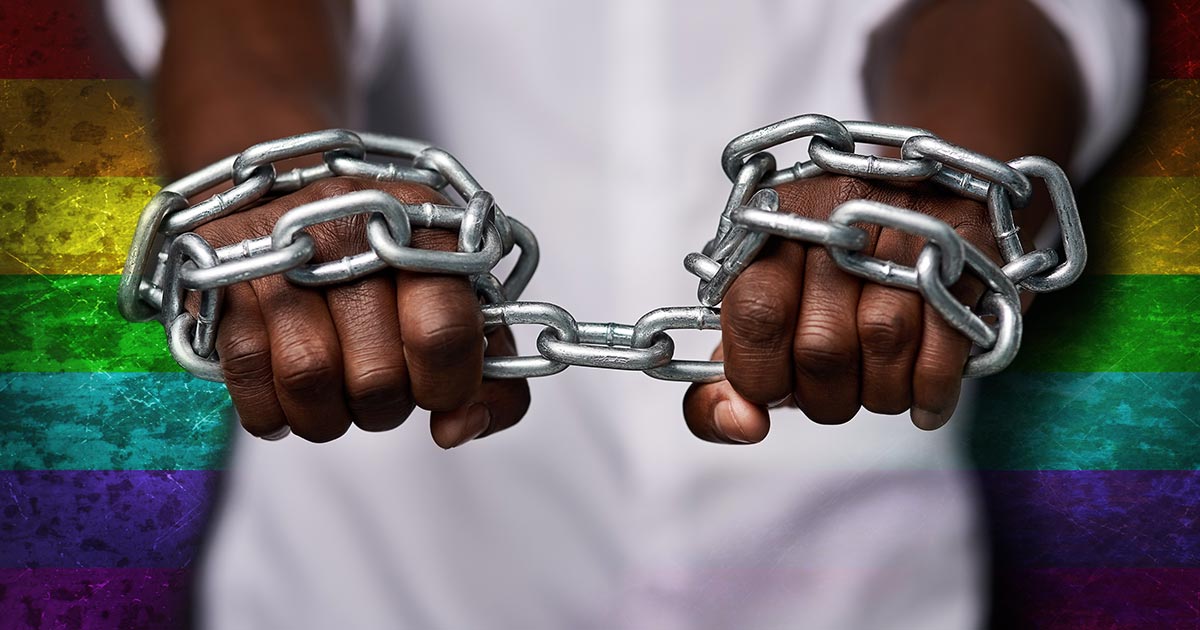Harsher punishments for queer communities in some African countries

It is not safe to be queer in many part of the continent of Africa. The punishment for gay, lesbian, trans, non-binary and other communities could be steep, leading to some being imprisoned for years, simply for their differences or because the person that they love is of the same sex.
This comes as no big surprise, given that so many African countries have outlawed same-sex relationships. However, several countries have created harsher punishments that affect gay and lesbian couples specifically, with repercussions for African queer communities as a whole.
Uganda is one of the countries where it is illegal to be gay, however, things have just gotten worse. The country’s president, Yoweri Museveni, recently signed a new bill into law, which could see some gay people facing the death penalty for “aggravated homosexuality” or twenty years in prison for “promoting” homosexuality. “Serial offenders” will also face capital punishment.
Kenya’s laws have also tightened. In 2019, the Kenyan High Court upheld a ruling that criminalised same-sex activity between consenting adults. The Kenyan Department of Education has also placed chaplains in schools in order to crack down on what it says is LGBTQI+ infiltration among the youth. Several foreign books have also been banned and removed, as they are perceived to encourage youth to engage in homosexuality. In addition, the government has signed an agreement with Netflix to ban its LGBTQI+ content in the country.
Tanzania has followed suit in taking a stronger stance against the queer community. Discussion of homosexuality is already outlawed in the country, and it’s also a taboo subject socially. Being gay in Tanzania comes with the heavy price of life in prison.
Both Kenyan and Ugandan authorities have said the move to bring in these laws was to help fight the HIV/AIDS epidemic. Many of the countries who have imposed heavy punishments (incorrectly) view homosexuality and queerness as a “Western import”, arriving in their land along with the colonialists. The irony is that several anti-gay and anti-queer groups and individuals use the Bible as their reason to back up anti-gay sentiments, forgetting that Christian churches are themselves “Western and colonial imports.”
These severe restrictions make it harder for LGBTQI+ and other human rights groups harder to do their work. Worse still, it paints a target on the backs of anyone perceived to be queer in those countries. The LGBTQI+ community already experiences discrimination and violent attack under even the best of constitutions – like that of South Africa.
These laws in Uganda, Tanzania and Kenya have led to violence against LGBTQI+ communities, placing them in grave danger and leading to safe spaces being closed down and organisations to disband or being forced underground.
These harsh punishments exist in many African countries that are dominated by religious Christian or Muslim rule. This is not to say that all Christians and Muslims discriminate against the LGBTQI+ community. However, these countries are using religious rhetoric to justify the laws that they pass, and in some cases, they use curbing HIV/AIDs as their argument for enforcing these laws.
Alarmingly, emboldened by Uganda, Kenyan and Tanzanian MPs are now pushing to enact similar harsher anti-LGBTQI+ legislation in their country.
It may sound dramatic, and like the plot of a dystopian novel, but in over 30 African countries, it appears that love is illegal. International pressure is not yielding any results on the governments of Uganda, Tanzania and Kenya. The fact remains that many of our queer African brothers and sisters are facing a bleak future.
Leave a Reply